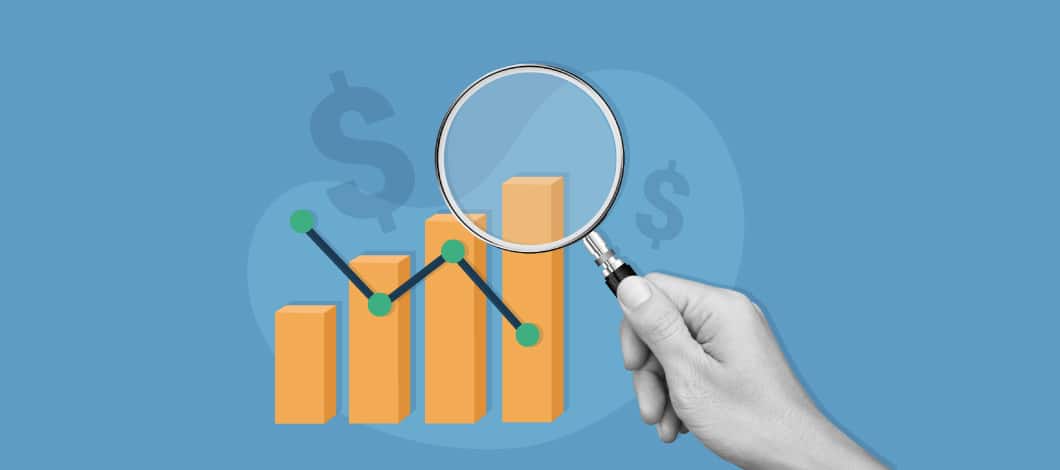Before starting a business, a common question from aspiring entrepreneurs is, “How much does a small business owner make?”
The average small business owner’s salary in the U.S. is just above $62,000 annually, or roughly $30 an hour, according to Dec. 2021 data from ZipRecruiter, which uses data from the payroll processing company ADP.
While the typical small business owner salary likely won’t fund a glamorous lifestyle, it is possible to create a vibrant, successful business that can offer financial stability and generate real wealth.
Let’s dive into more details regarding a small business owner’s salary range, what impacts overall compensation and how to find and utilize a small business owner salary calculator.
How Much Do Small Business Owners Make?
While ZipRecruiter noted a national average entrepreneur salary of $62,083, not all small business owners earn the same amount, and different sources may return varied data. For instance, PayScale’s Dec. 2021 data put the average at just under $65,000, though this was based on just 355 salary profiles.
The average compensation for small business owners also varies by state. According to recent ZipRecruiter data*, here is the average from highest to lowest:
| State | Annual Salary | Hourly Wage |
| New York | $69,980 | $33.64 |
| New Hampshire | $67,839 | $32.61 |
| Vermont | $64,126 | $30.83 |
| Wyoming | $62,481 | $30.04 |
| Maine | $62,360 | $29.98 |
| Massachusetts | $62,266 | $29.94 |
| West Virginia | $60,808 | $29.23 |
| Hawaii | $60,587 | $29.13 |
| Washington | $60,526 | $29.10 |
| Pennsylvania | $59,779 | $28.74 |
| Connecticut | $59,215 | $28.47 |
| Montana | $59,082 | $28.40 |
| New Jersey | $58,604 | $28.18 |
| Arizona | $58,473 | $28.11 |
| Rhode Island | $58,139 | $27.95 |
| Indiana | $58,098 | $27.93 |
| Alaska | $57,625 | $27.70 |
| North Dakota | $57,280 | $27.54 |
| Nevada | $57,172 | $27.49 |
| Maryland | $57,114 | $27.46 |
| Tennessee | $56,640 | $27.23 |
| Minnesota | $56,614 | $27.22 |
| Wisconsin | $56,573 | $27.20 |
| Georgia | $56,407 | $27.12 |
| Ohio | $56,227 | $27.03 |
| Nebraska | $56,187 | $27.01 |
| South Dakota | $55,608 | $26.73 |
| Virginia | $55,450 | $26.66 |
| Utah | $55,376 | $26.62 |
| Alabama | $55,089 | $26.48 |
| California | $54,966 | $26.43 |
| Louisiana | $54,904 | $26.40 |
| Oregon | $54,788 | $26.34 |
| Kansas | $54,026 | $25.97 |
| Iowa | $53,887 | $25.91 |
| New Mexico | $53,770 | $25.85 |
| South Carolina | $53,687 | $25.81 |
| Colorado | $53,517 | $25.73 |
| Delaware | $53,382 | $25.66 |
| Florida | $53,164 | $25.56 |
| Missouri | $53,120 | $25.54 |
| Oklahoma | $52,221 | $25.11 |
| Idaho | $51,441 | $24.73 |
| Kentucky | $51,229 | $24.63 |
| Mississippi | $50,618 | $24.34 |
| Arkansas | $50,277 | $24.17 |
| Michigan | $50,216 | $24.14 |
| Illinois | $50,004 | $24.04 |
| Texas | $49,636 | $23.86 |
| North Carolina | $45,748 | $21.99 |
*In addition to ADP data, ZipRecruiter uses employer job postings and third-party data sources to provide salary estimates, histograms, trends and comparisons.
Salary vs. Income
Note that the average business owner’s salary is different from the average income of a small business owner. Salary refers to the base compensation you derive from your business, while income refers to your total pay from other sources, including tips, commissions and draws (i.e., drawing money from the business).
Also note that the average business owner sometimes makes money in ways other than a salary, such as distributions from partnership profits or dividends.
Depending on experience level, the average income of small business owners in the U.S. is the following, according to PayScale.
| Experience Level | Average Total Compensation** |
| >1 year | $30,913 |
| 1-4 years | $49,751 |
| 5-9 years | $60,502 |
| 10-19 years | $68,387 |
| 20 or more years | $76,253 |
**PayScale data based on 9, 63, 65 or 113 salaries depending on experience level
Related: Business Organizations: Which of These 4 Works Best for You?
Factors That Impact an Entrepreneur’s Average Salary
A small business owner’s salary is varied and influenced by a diverse range of factors.
Here are just a few that can affect your income as an entrepreneur:
- Credibility and industry experience
- Business field and industry
- Overhead costs
- Location
- Company business model
- Organizational structure
- Business debt
- Number of employees and partners receiving compensation
Experience and time in business can impact your success and annual salary.
As you’ve seen, location is a key factor too. Location can determine everything from the daily foot traffic you receive to specific demographics you should be targeting. Certain areas might also be prime territory for seasonal markets and industries specific to a certain landscape and climate, such as tourism (e.g., Nevada, Florida and New England states).
Determining Your Small Business Owner Salary
With no single, fixed answer to, “What is the salary of a business owner?” you’ll have to decide your compensation amount.
It’s wise to reinvest profits in your business, but you want to make sure you can cover your personal debts and cost of living.
There are steps you can take to calculate a salary that’s accurate, fair and right for your business.
Calculate Monthly Net Income
When deciding what your business owner wages should be, you should first consider your business’s profit margin. To do this, figure out your monthly net income.
-
Monthly Net Income Formula
Gross Revenue – Total Expenses = Net Income
This relatively straightforward formula can help you determine how much your business can afford to pay.
It’s critical to revisit your salary often and make changes as needed throughout the year, especially in a business’s early days.
Calculate Your Tax Savings and Company Debt
The actual amount you’ll pay in taxes will vary based on a number of factors — from your expense deductions to your savviness when it comes to finding applicable tax breaks. However, a safe starting point is to dedicate 30% of your income to taxes.
Once you’ve calculated your tax needs, it’s time to address your company debt. Although it might be tempting to prioritize your salary, you’ll benefit in the long run if you first tackle your debt. Remember that your loan payments are likely tax-deductible.
How Much Should I Pay Myself as a Business Owner?
The business owner salary you take is usually up to you. However, some business organizational structures (i.e., S-corporation) legally mandate that you pay yourself a salary in line with industry standards.
Some business owners whose companies generate lots of profits will choose to pay themselves ample salaries. Other business owners aren’t able or willing to take home the revenue their business generates. Instead, most revenue will go back into the business to fund equipment, renovations, new locations, new products and services and employee salaries.
Decide When to Pay Yourself
As a business owner, once you have a good grasp of your company’s cash flow and the company is turning a profit, you may consider paying yourself. Keep in mind, you’ll need to factor your salary into the business’s operating expenses.
Also, your specific business entity could also impact when you decide to pay yourself. For instance, if your business is a corporation, you may want to hold off paying yourself a salary until you’ve exhausted your available reimbursements. Consider consulting an accountant to determine the best time to start paying yourself as a small business owner.
Think About Benefits
If you’re a self-employed entrepreneur, you could obtain health insurance for yourself on HealthCare.gov. Additionally, you could be able to deduct your premiums when you file your taxes. Alternatively, if you have employees, seek group benefits from an insurance provider.
You might also consider retirement benefits, such as a SEP IRA or ROTH IRA, if you’re self-employed and meet qualification requirements. If you’re a small business owner with employees, you might consider offering a 401(k) plan.

Do Your Research
Researching your industry can provide insights to help you calculate what you should be paid, even once you have a solid grasp on what your business can afford to pay.
Apply this strategy to any field by considering what your title would be if you were a hired employee rather than a business owner. You can search average wages by occupation on job posting sites, such as Salary.com, CareerExplorer as well as ZipRecruiter. Average occupational wages are also recorded on the U.S. Bureau of Labor Statistics website.
It’s important to pay yourself a reasonable wage, particularly if your business is structured as an S-corporation or an LLC. That’s because paying yourself too little then taking a large bonus or an owner’s draw could raise red flags with the IRS.
Use an Online Calculator
Also, look to online calculators to help you determine your final salary calculations.
PayScale, for instance, offers a comprehensive salary survey that can be used as a small business owner salary calculator. It will generate a report comparing your education, experience, location and title to national averages.
The job posting site Glassdoor also has a salary calculator, which allows users to search for reasonable salaries based on location and job title. The website is able to tap into millions of salaries to calculate its results.











